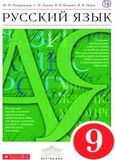Упр.46 Unit 4 ГДЗ Enjoy English 9 класс
46 Исследуйте текст и ответьте на следующие вопросы.
• Какие группы людей пострадали от стереотипов?
• Почему это неправильно, если есть стереотипы в отношении этих людей?
• Какое поведение и язык - дискриминация?
• Какое поведение и язык политкорректны?
Решение #
1) Retirees, disabled people, Afro-Americans (Пенсионеры, инвалиды, афро-американцы).
3) I think if you call someone Negro or Niger – it’s discrimination (Я думаю, если вы называете кого-либо негром или Нигером - это дискриминация).
4) I think that in other situations that are mentioned in text the behavior is politically correct (Я думаю, что в других ситуациях, которые упоминаются в тексте, поведение является политически корректным).
Приведем выдержку из задания из учебника Биболетова, Бабушис 9 класс, Дрофа:
46 Read quickly through the text and say which part of it is ahout:
1) ethnic groups;
2) elderly people;
3) people with disabilities.
STEREOTYPES AND COMMUNICATION
a) Today in the United States, mass media never shows old people as weak or helpless Old people in the US are called "senior citizens". In this way, Americans show respect for the long life people have lived. It is an honour to be a citizen of a great country, and the word "senior" means "high in rank and status". Senior citizens are called the "generation at the top". The age of retirement is sometimes called the "golden age". Old people are as different as young people in their talents, skills and abilities. Nowadays, after people retire, they remain active. They often work and they help their children and grandchildren. They travel and do sport. They can give young people good advice and tell them exciting stories.
b) Another group hurt by stereotypes are people with disabilities. Many cannot do certain things, including seeing, hearing or walking. But these people have other abilities and talents. Johann Sebastian Bach, Albert Einstein and Agatha Christie were all people with disabilities. But they could still do great things.
In the US, people are taught to avoid words that may hurt people with disabilities. Here is some advice you might hear in the United States. First, use words that focus on the person's individuality, not his / her disability. Instead of "the disabled", say "people with disabilities". Don't say "the deaf", say "people who are deaf". Second, never use words that show pity or fear of people with disabilities, and never use the word "normal" in contrast. Never use the words "victim" or "sufferer" to name a person who has a disability or disease. For example instead of saying "a victim of AIDS" or "an AIDS sufferer", say "a person with AIDS"
c) In the US, you have to be very careful about the words you use to speak about minorities (ethnic groups . You will be accused of discrimination if you show disrespect toward different groups. Making ethnic jokes is very hurtful to people and shows politically incorrect behaviour.
You will be accused of racism if you use the improper term for people who have black skin. The US no longer uses the word "Negro" like in the old days. The term "Negro* does not refer to a person's country of origin so it is not politically correct. Most black people in the US now prefer the term "African American".
*размещая тексты в комментариях ниже, вы автоматически соглашаетесь с пользовательским соглашением







